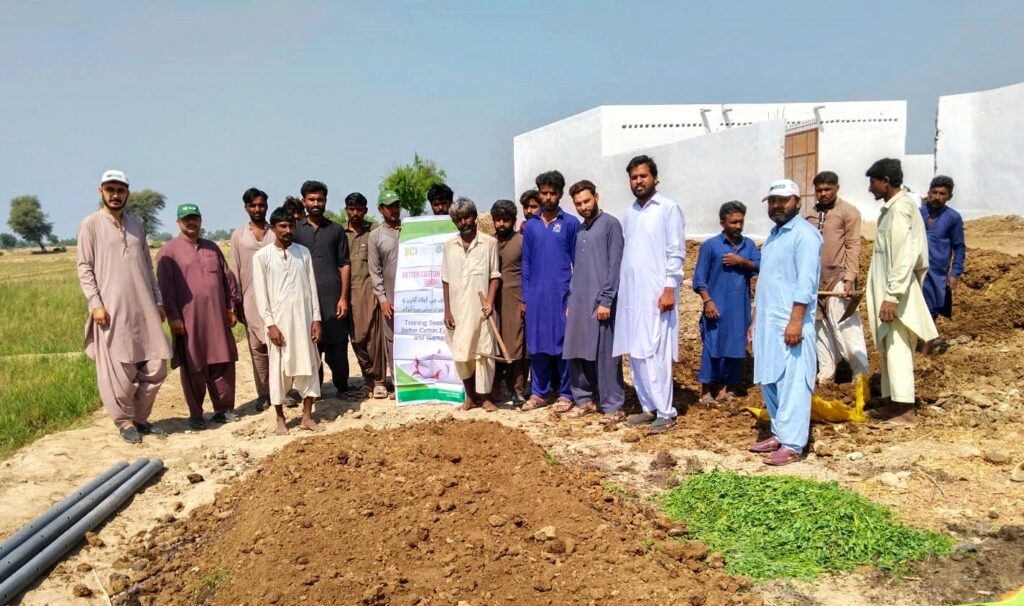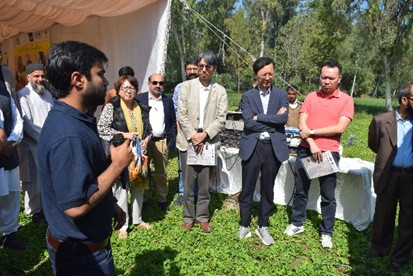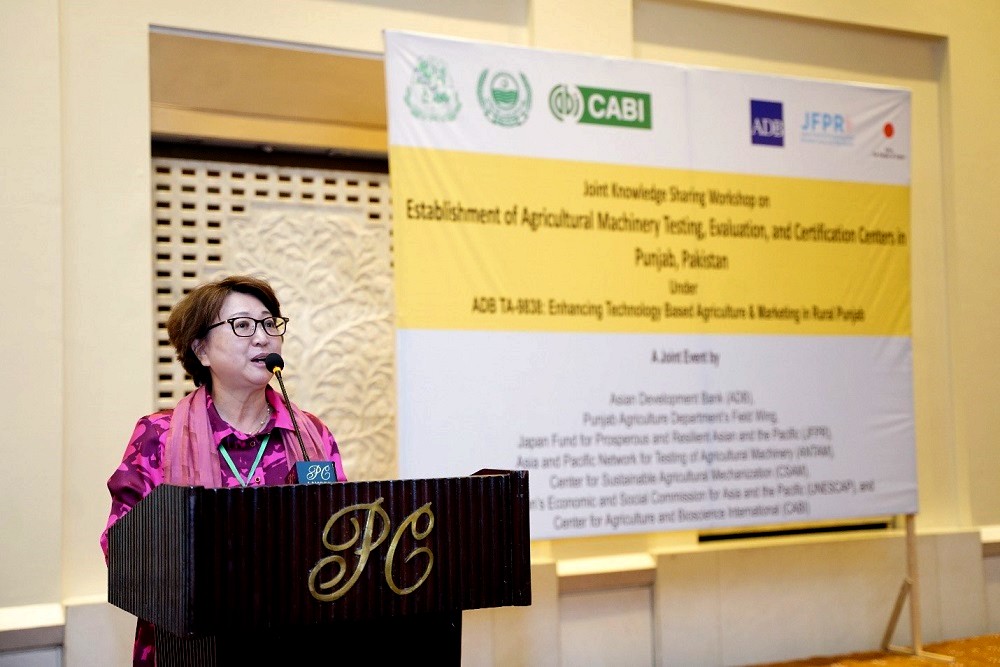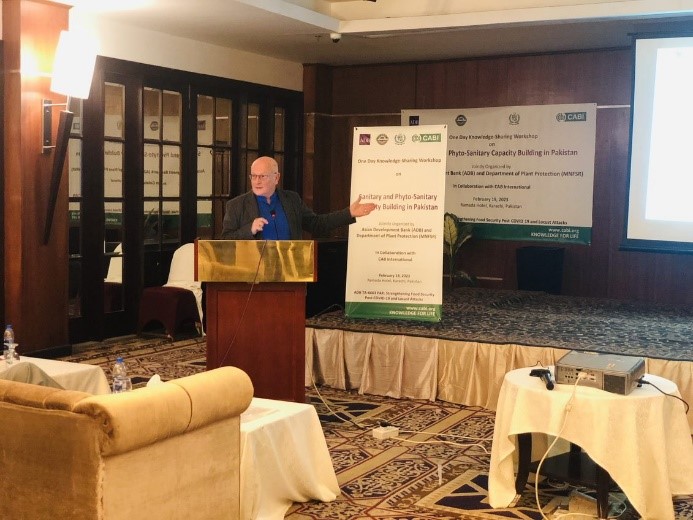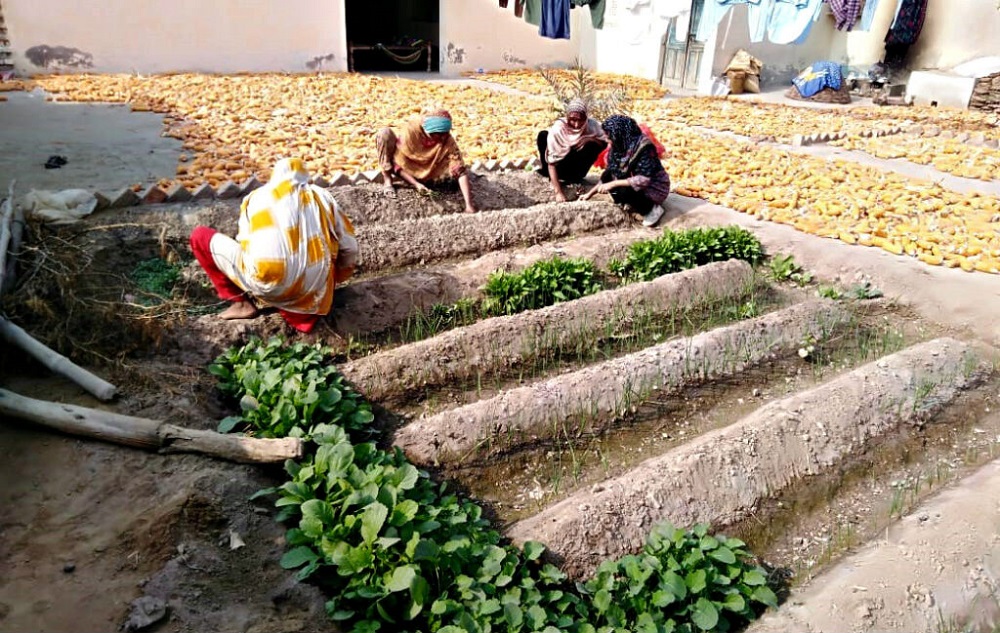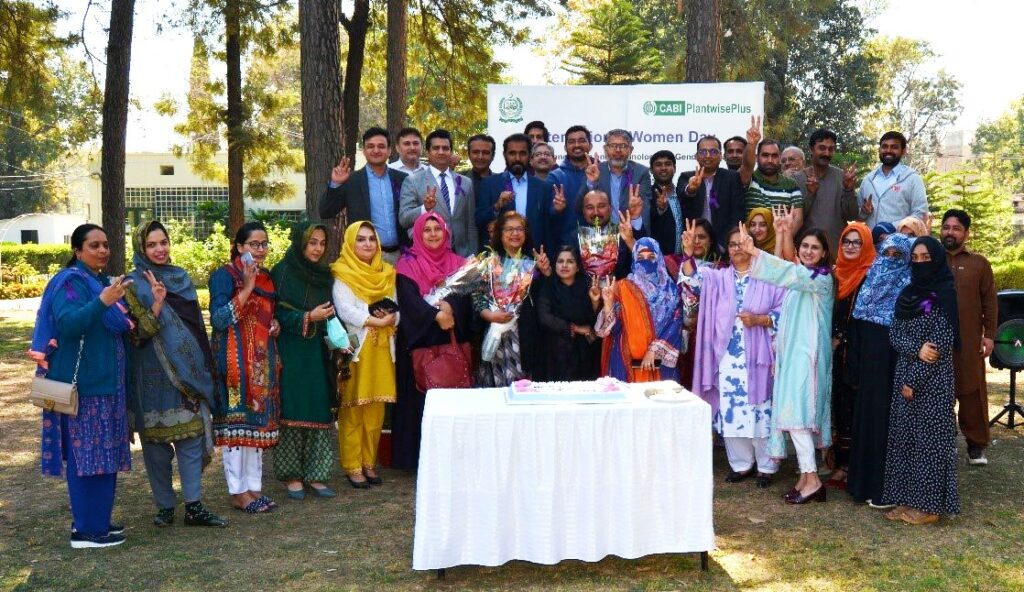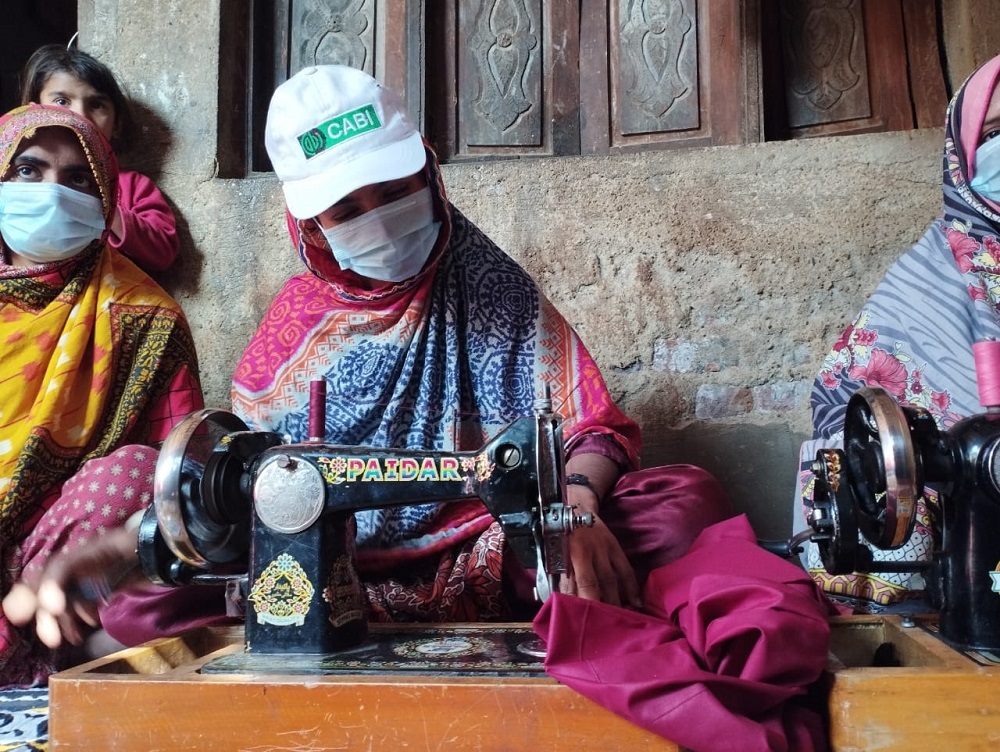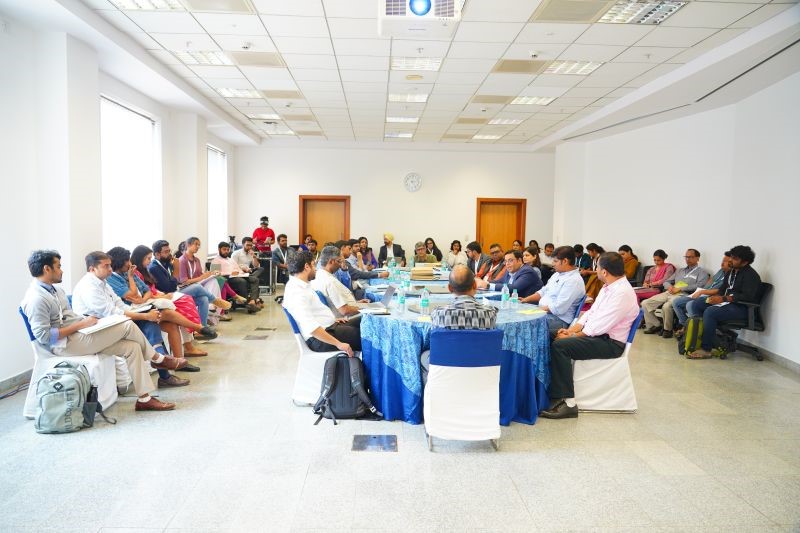CABI Blog
You are here: CABI Blog
Surviving the Pakistan floods: reducing fertilizer without compromising food security
April 14, 2023
Noor Nabi Bhutto, Partab Rai
1 comment
The devastation brought about by the monsoon floods in Pakistan left millions displaced and without food, clean drinking water, and shelter.
Changing minds, empowering farmers: trainings conducted in Sheikhupura, Pakistan
April 13, 2023
Gohar Gulshan Mahmood, Shakeel Ahmad
No Comments
Under the Asian Development Bank (ADB)-funded project ‘Enhancing Technology-Based Agriculture and Marketing in Rural Punjab,’ staff from CABI’s centre in Pakistan have delivered a series of training sessions aimed at helping farmers reap better crops.
Report turns spotlight on animal influenza
April 11, 2023
Wayne Coles
No Comments
A new report has been published which provides an overview of research conducted across the major fields of animal influenza in the last six years.
Workshop highlights need for increased mechanization of Pakistan’s agriculture industry
April 4, 2023
Wayne Coles
No Comments
Agriculture is the backbone of the economy of many countries around the world. This includes Pakistan were the agriculture sector employs almost 50% of the nation’s work force and accounts for nearly 20% of its Gross Domestic Product (GDP).
Workshop highlights importance of SPS capacity building for greater food security in Pakistan
March 13, 2023
Dr M.Sajid Qureshi, Dr Talha Nazir, Kazam Ali
2 comments
CABI, the Asian Development Bank (ADB) and the Department of Plant Protection (DPP), have held a workshop aimed to strengthening Sanitary and Phyto-Sanitary (SPS) measures to ensure greater food security in Pakistan amid risks posed by quarantine pests and chemicals due to high toxicity levels. Pakistan needs to meet the high international standards for food…
Reaping the rich harvest of the kitchen garden despite devastating floods in Pakistan
March 10, 2023
Mushtaque Ali, Rahib Ali
No Comments
Long-lasting and heavy monsoon rains since June 2022 have claimed thousands of lives in large parts of Pakistan particularly Sindh. Millions of people have had to leave their homes and are now homeless or living in emergency shelters.
Embracing equity, celebrating International Women’s Day
March 8, 2023
Mahwish Sarwar
1 comment
CABI recognises the important role women play in Science, Technology, Engineering and Mathematics (STEM) including in the agricultural industry – helping to ensure greater food security for millions around the world.
Women’s empowerment through skills development – small revolutions bring big changes
March 7, 2023
Noor Nabi Bhutto, Rehana Ali
No Comments
CABI strongly upholds the importance of women’s empowerment for community development and to help the sustainable progress of the country where they live and Pakistan is no exception.
Sowing the seeds of women’s leadership in researching Pakistan’s chilli sector
March 2, 2023
Babar Bajwa, Sabyan Faris Honey
1 comment
Over the past decade, there has been a global shift in the inclusiveness of women in varied fields including all levels of science, technology, engineering and mathematics (STEM) disciplines.
CABI showcases its expertise in open data at first annual Public Policy Dialogues Conference in India
January 31, 2023
Arun Jadhav
No Comments
Scientists from CABI’s centre in India has showcased their expertise in open data at the first annual Public Policy Dialogues Conference hosted by the Bharti Institute of Public Policy at the Indian School of Business (ISB) in Hyderabad. The event served as a gathering of experts in the field where both researchers and practitioners took…
Subscribe to blog
DISCLAIMER
Views expressed in contributions do not necessarily reflect official CABI positions.
Archives
Categories
- Agriculture and International Development
- Veterinary and Animal Sciences
- Climate change and biodiversity
- Publishing
- Value chains and trade
- Crop health
- Environmental Sciences
- Human Sciences
- Tourism, Hospitality and Leisure
- Food and nutrition security
- Plant Sciences
- Gender and youth
- Digital development
- Development communication and extension
- Economic development
- Invasive species
- CABI Bioservices
- One Health


